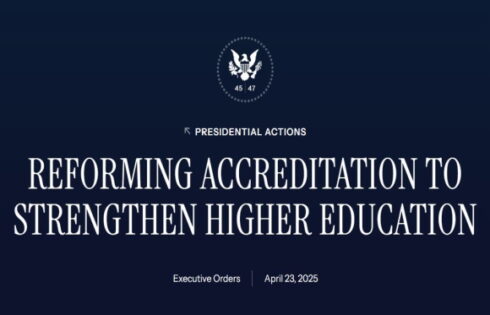
OPINION: College degree isn’t only way to success
The social status and perceived necessity of a college degree suffered further setbacks this school year.
The stories do not undermine that for some young adults, a degree might be worth it. Instead, they show that many degrees are not worth the price and that some in Gen Z are reluctant to hop right into a program without considering other options first.
Students see work as a better option than a four-year degree
The University of Northern Iowa has a problem – local students are finding that jobs at the local factory offer a better opportunity than a degree at their school. Some high schoolers are taking jobs working at the furniture factory rather than going to UNI or other public universities in Iowa.
Other high school graduates are taking steps in between – for example, getting a nursing assistant certificate while on the way to a full degree in the field.
“You don’t have to go to college, you can make really good money, you learn on the job,” and factories aren’t as dirty and messy as some might think,” a human resources manager for one company said, explaining the effective approach to recruitment.
52 percent of college grads work in jobs that don’t require college degrees
If Gen Z is reluctant to go to college, it might be because their friends and siblings are working in jobs that do not require a college degree.
A report from the Strada Education Foundation found that more than half of recent college graduates are working in jobs that do not require degrees.
“Graduates with degrees in fields with more quantitative rigor have greater odds of securing college-level jobs than their peers,” the report found.
Higher education expert Preston Cooper said transparency is needed to help students make good choices. “Students should be aware that a four-year college degree by itself is not a surefire ticket to a good middle-class job,” Cooper told The College Fix, commenting on the report.
“It’s also important for students to choose a major with good job opportunities, attend an institution with a good track record of job placement, and take action while in college to improve their employability,” Cooper told The Fix.
States continue to drop degree requirements
States across the country continue to drop their degree requirements for some job openings. Delaware announced its changes in January of this year.
Other states, including Utah, Virginia, Pennsylvania, Massachusetts, and Maryland have also reconsidered the necessity of college degrees for some job openings in the past several years.
Colorado report finds microcredentials can lead to pay increases
Microcredentials and other short-term learning opportunities can lead to pay increases, a report from Colorado found. It showed that a college degree is not the only way to increase income.
“Aside from associate, bachelor’s, master’s, and doctoral degrees, the non-degree credentials that can be considered include postsecondary undergraduate certificates, industry credentials, apprenticeship certificates, non-credit badges and microcredentials, as well as licensure,” the Colorado Department of Higher Education told The Fix.
College can benefit some, but it is not for everyone
A college education can provide value. For some jobs, it is a necessity. It would be hard, and illegal, to become a medical doctor without a college degree. Jobs like engineer, teacher, and biologist require a level of training that cannot, at least at this time, come from short-classes and on-the-job education.
Gen Z workers who take a job instead of heading off to college may even end up one day getting a degree. But they might get that degree with the help of their employer. And they might have a better idea of what they want to study, after gaining some real-world experience.
Gen Z college graduates lived through remote learning and COVID shutdowns. It likely reoriented the way they think about school and the value of work.
It is a positive development when anyone thinks through what they want from their career and what it takes to get there.
MORE: College enrollment drops by 1.3 million in two years
IMAGE: Just Life/Shutterstock
Like The College Fix on Facebook / Follow us on Twitter






Please join the conversation about our stories on Facebook, Twitter, Instagram, Reddit, MeWe, Rumble, Gab, Minds and Gettr.